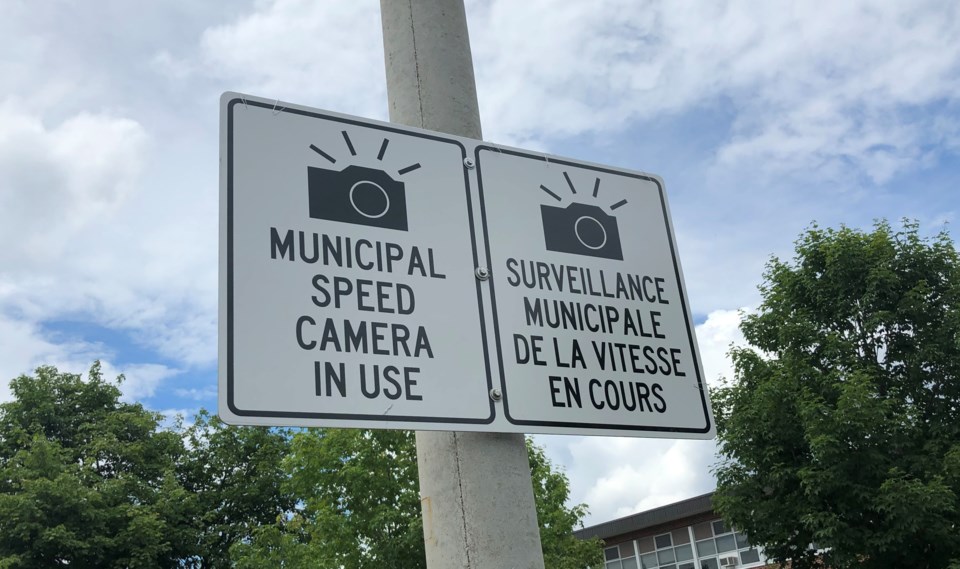Innisfil could be one of the first smaller communities in the province to utilize automated speed enforcement (ASE).
Councillors directed staff to further research how a partnership between the Association of Municipalities of Ontario (AMO) and the town will work when it comes to implementing an ASE system. AMO’s business arm, Local Authority Services (LAS) reached out to the town recently, offering the opportunity to be the “first customer.”
“They are offering Innisfil the chance to be the ‘first customer’ which means the opportunity to have early access to a new transformative tool for traffic safety,” the staff report on the proposal indicated. “Being the first means that we’ll be influencing the development of a model that is deeply desired by municipalities across Ontario.”
LAS has partnered with the City of Barrie to create a Joint Processing Centre. This is where provincial offence officers receive and process the data that comes from ASE cameras, which are photos of vehicles exceeding the posted speed limit in the designated area. The officer then reviews the information collected and mails a ticket – including a photo of the infraction – to the registered plate owner of the vehicle within 30 days.
No demerit points are issued for ASE offences.
To date, only larger communities, such as the City of Toronto or Region of Peel have been able to utilize ASE technology since it was reintroduced to the province in 2017, due to the significant start-up cost in executing the program, including investments in technology and human resources. Through the LAS, AMO is looking to help smaller and medium-sized municipalities in Ontario utilize ASE.
“I’m so glad to see this day come,” said Mayor Lynn Dollin. “I really think this is going to be a game changer, not just for us, but for every municipality.”
The infraction recorded in Innisfil would be processed through the JPC in Barrie. The LAS letter to the town indicated that in the longer term, Innisfil could be home to a JPC itself, Dollin said, but for now, the municipality would have to work with the City of Barrie. Once the offender receives the ticket, they will be required to pay the fine to the Town of Innisfil, which will mostly keep, minus administrative and any court fees incurred.
Just how much that translated to was a concern for Deputy Mayor Kenneth Fowler. He wanted a clear picture as to how much money from the tickets the town would actually see from the tickets issued and how much would stay in the City of Barrie.
That was information town staff doesn’t have – yet. A full business case will be available in the next report to council, said Nicole Bowman, Director of Operations.
“Our recommendation to council is to take this first step of acknowledging LAS’ request of us and beginning to walk down that road,” said “We’re going to come back to you with more of a thorough analysis, looking at all of the expenses related to this.”
The additional research from staff should help answer more questions about the program before it comes to town. That said, staff acknowledges being the test case for the new project means the solution Innisfil introduces could be far from perfect.
“It also means we won’t be given a perfect manual for setting this up and we’ll likely uncover the challenges of ASE programs together with LAS and the City of Barrie and work at solving them,” staff indicated in the report.
But that didn’t deter councillors. In moving the motion at committee-of-the-whole, Coun. Grace Constantine said traffic safety was the number one issue she heard from voters in her ward, a statement that would likely be echoed throughout the community. For them ASE is a way to help solve that issue.
Dollin was equally excited. Earlier in the evening, she was once again confirmed as a member of the town’s Traffic Safety Advisory Committee. She told her colleagues at that time she only plans to sit on that committee for roughly a year so that she can see the implementation of the ASE and the town’s administrative monetary penalty project come to fruition.
“The number one idea here isn’t about making money,” Dollin said. “The number one idea here is about making our streets safe.”
